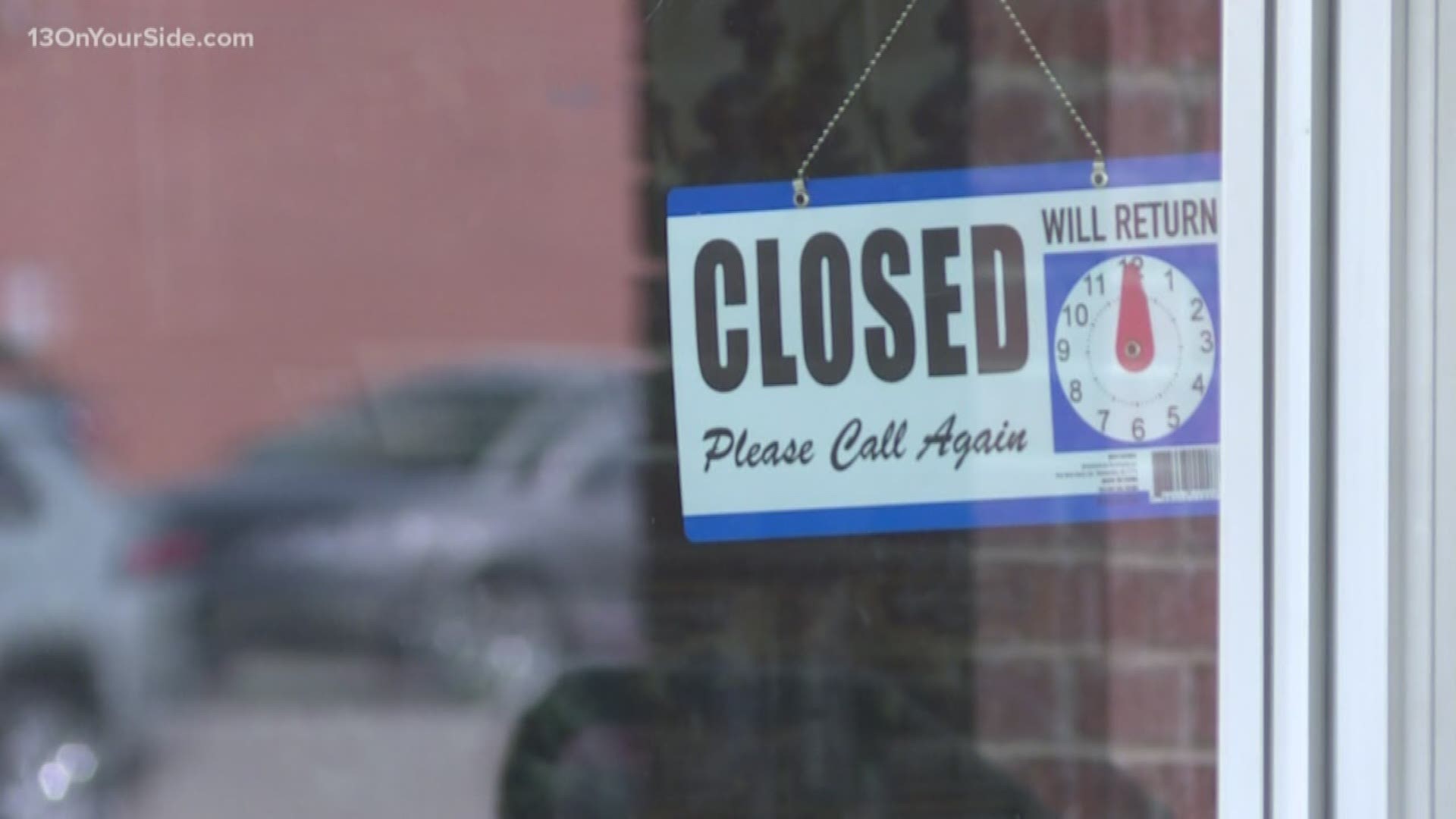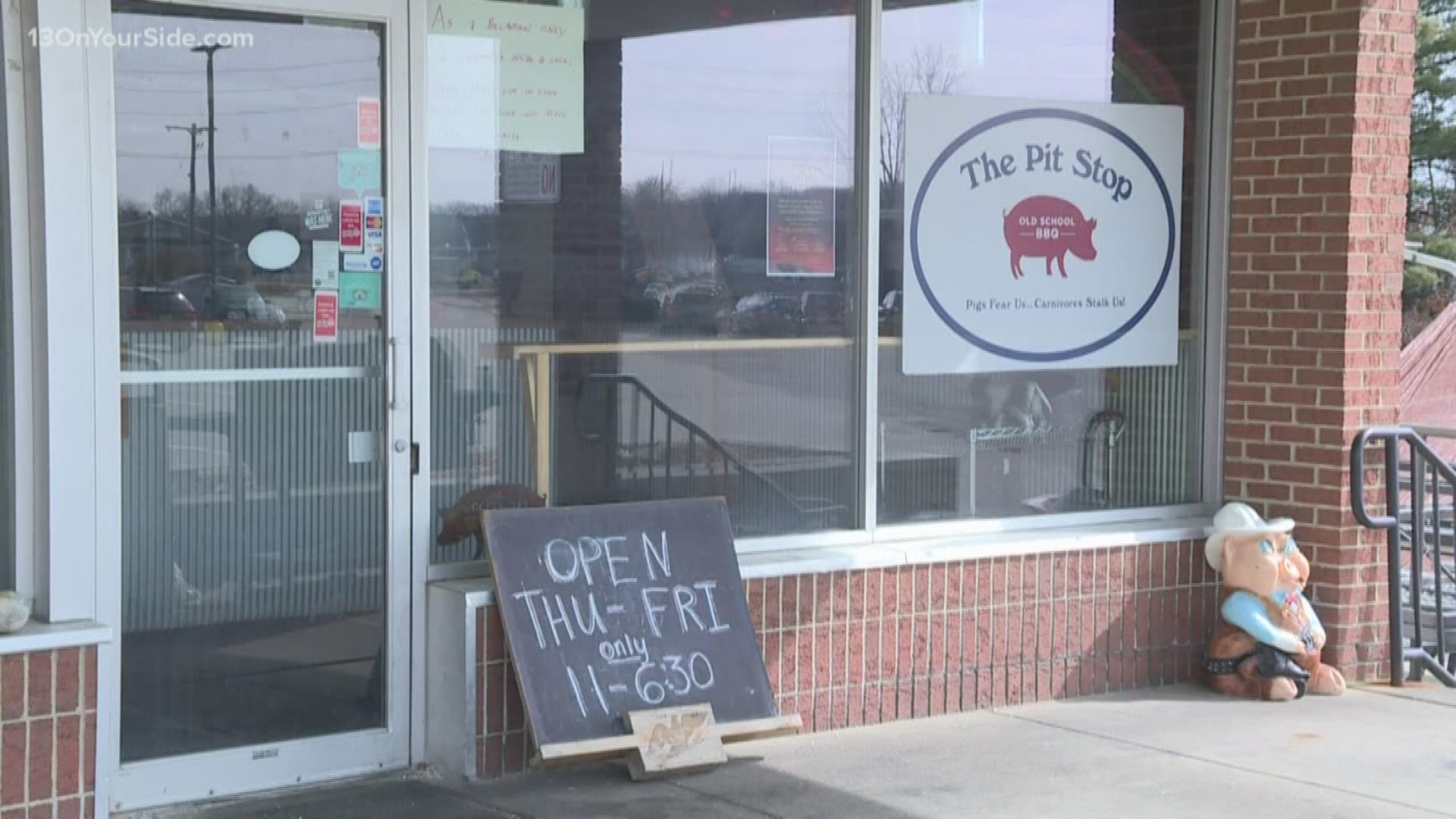GRAND RAPIDS, Mich — (GRBJ) - The Michigan offices of a pair of national agencies are working to help small businesses understand their options, including emergency loans, during the coronavirus crisis.
Rob Scott, Great Lakes regional administrator for the U.S. Small Business Administration, on Friday, March 20, hosted a media conference call featuring SBA Michigan District Director Constance Logan as well as SBA district directors from Cleveland and Columbus, Ohio.
The purpose of the call was to make clear the terms of and eligibility for low-interest federal disaster loans for working capital to Michigan small businesses suffering losses as a result of COVID-19.
After declaring a state of emergency related to the pandemic on March 11, Gov. Gretchen Whitmer on March 17 requested and on March 19 secured SBA approval for a statewide Economic Injury Disaster Loan declaration, opening the opportunity for certain small businesses to access the low-interest government loans.
“This designation unlocks critical financial resources for small businesses across the state impacted by the tough but necessary steps we have taken to mitigate the spread of coronavirus here in Michigan,” Whitmer said at the time.
Those mitigation steps have included the closure of all Michigan nonessential businesses as part of Whitmer’s March 23 “Stay Home, Stay Safe” executive order.
“While access to these loans is vital, we are continuing to look at every resource available to support our businesses, communities and entrepreneurs around the state impacted by coronavirus,” Whitmer said.
State banking regulators and federal financial institution regulatory agencies in a joint statement on March 22 urged banks and financial institutions to work with borrowers on short-term loan modifications as another form of assistance, which could include payment deferrals, fee waivers, extensions of repayment terms or other “insignificant” delays in payment.
The SBA disaster loans are geared toward those that aren’t able to access other forms of credit/forbearance and do not have “the financial ability to offset the adverse impact without hardship,” according to the SBA.
The SBA acted under its own authority in declaring a disaster, as provided by the Coronavirus Preparedness and Response Supplemental Appropriations Act signed by President Donald Trump on March 4.
The disaster declaration for this region makes SBA assistance available in the entire state of Michigan and the contiguous counties of Elkhart, La Porte, Lagrange, St. Joseph and Steuben in Indiana; Fulton, Lucas and Williams in Ohio; and Florence, Forest, Iron, Marinette and Vilas in Wisconsin.
“SBA is strongly committed to providing the most effective and customer-focused response possible to assist Michigan small businesses with federal disaster loans. We will be swift in our efforts to help these small businesses recover from the financial impacts of the coronavirus,” said SBA Administrator Jovita Carranza, who is a member of Trump’s cabinet and works on behalf of 30 million U.S. small businesses.
In the regional media conference call on March 20, Scott said the SBA is now “solely focused” on economic recovery efforts.
Small businesses, private nonprofits, small agricultural cooperatives and small aquaculture enterprises that have been financially impacted as a direct result of COVID-19 may borrow up to $2 million through the Economic Injury Disaster Loan program, Scott said.
“This is not a grant. It is a loan,” he said.
The loans may be used to pay fixed debts, payroll, accounts payable and other bills that can’t be paid because of the disaster’s impact.
The interest rate of the fixed-rate, up to 30-year loans is 3.75% for small businesses and 2.75% for private nonprofits.
The long-term repayment schedule is designed to keep payments affordable during what will certainly be a lengthy economic recovery.
Scott said the SBA is hosting webinars with PowerPoints to help small businesses navigate the loan application process.
More information on the process is available at disasterloan.sba.gov/ela.
Applicants also may call SBA’s Customer Service Center at (800) 659-2955 or email disastercustomerservice@sba.gov for more information on SBA disaster assistance. Individuals who are deaf or hard‑of‑hearing may call (800) 877-8339.
Completed applications should be mailed to U.S. Small Business Administration, Processing and Disbursement Center, 14925 Kingsport Road, Fort Worth, Texas, 76155.
The deadline to apply for an Economic Injury Disaster Loan is Dec. 21, 2020.
So far, the turnaround time for disbursement following completed and approved applications has been “fairly quick” in this region, Scott said, with businesses receiving the loans in one to five days. He added SBA disaster teams nationwide have been prepared by recent hurricanes to quickly churn through the emergency loan program applications, which gave them experience for a situation like this.
Scott said if applicants are denied, the SBA is making every effort to reach out and assess why and help them work toward eligibility to try again.
Logan, the SBA Michigan director, said she is dropping everything to answer small businesses’ emergency questions during this time.
“We’re going to get through this. … We are very committed to making an impact in the small business community,” she said.
The Michigan SBDC has been asked to logistically support the Economic Injury Disaster Loan program.
Ed Garner, regional director of the West Michigan SBDC office housed at the Seidman College of Business at Grand Valley State University, said the office recognizes the unprecedented level of difficulty today’s small businesses are facing during the COVID-19 crisis.
“Michigan SBDC business consultants are here to help small businesses navigate their response to COVID-19, including accessing the SBA’s Economic Injury Disaster Loan program,” he said. “We can help determine if this loan is right for your business and connect you with the resources you need to confidently move forward.”
The Michigan SBDC also has set up a COVID 19 page at sbdcmichigan.org/small-business-covid19 with small business support options, including links to SBA webinars and webinar summaries; created its own webinar series on current topics, such as managing cash flow, marketing and human resource issues in a time of crisis; and has extended its capacity for remote business consulting.
Additionally, the Michigan SBDC has been charged with supporting a state program to help small businesses affected by the stay-at-home order.
The Small Business Relief Program of the Michigan Economic Development Corporation’s Michigan Strategic Fund will provide up to $20 million for small businesses negatively impacted by COVID-19.
The funding is divided between $10 million in small business grants and $10 million in small business loans. Funds for the program are expected to be available no later than April 1, 2020.
More information is available at sbdcmichigan.org/small-business-relief-program.
This story originally appeared in the Grand Rapids Business Journal. To find similar content, pick up a copy or find more on their website.
RELATED VIDEO:
MORE on 13 ON YOUR SIDE:
- Ford pushes for factory restart, union not so sure
- UIA slammed with influx of unemployment claims amid coronavirus crisis
- Shipt looks to add 2,000 shoppers in the Grand Rapids area
- How Michiganders will benefit from the $2 trillion national stimulus deal
- Here is a list of West Michigan businesses hiring amid COVID-19 outbreak
►Make it easy to keep up to date with more stories like this. Download the 13 ON YOUR SIDE app now.
Have a news tip? Email news@13onyourside.com, visit our Facebook page or Twitter. Subscribe to our YouTube channel.


